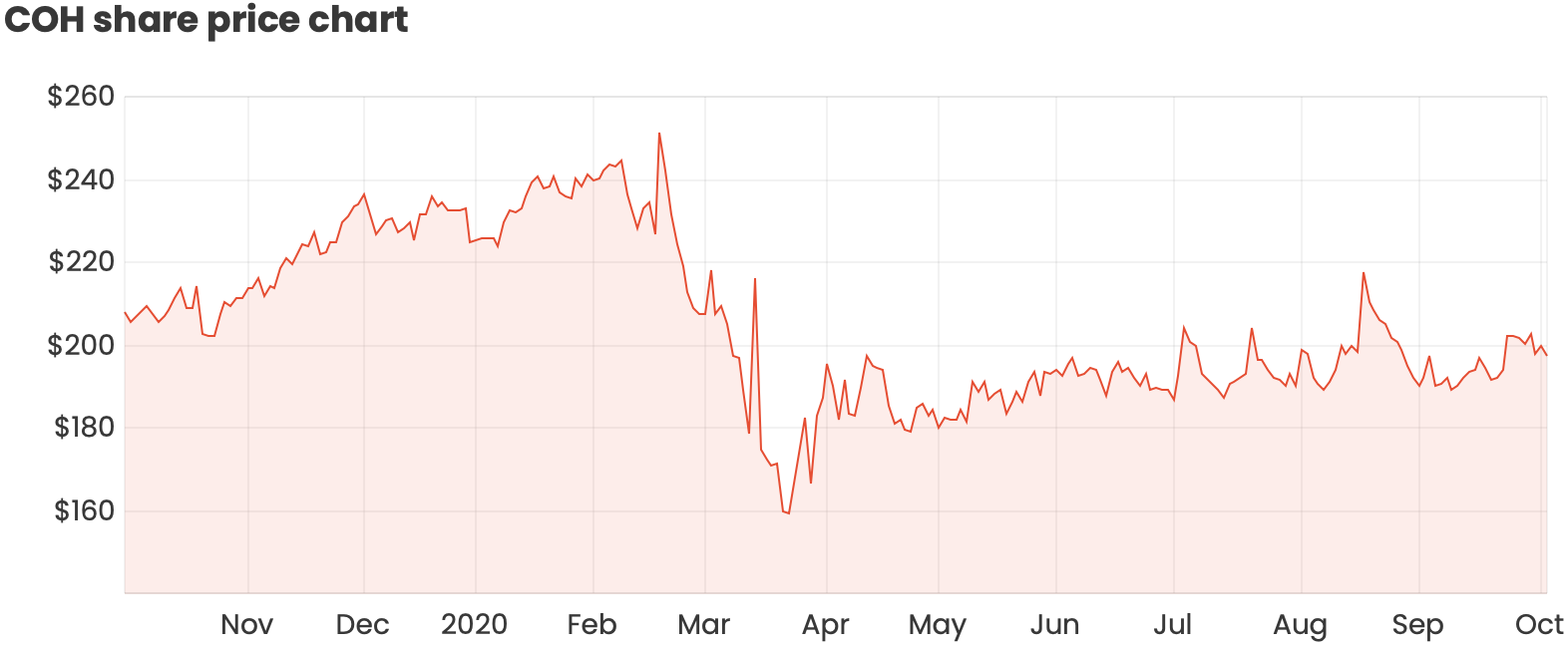The Cochlear Limited (ASX: COH) share price is just over 20% below its 2020 high. Is now the time to go shopping?

What does Cochlear do?
Cochlear is a leader in implantable hearing solutions, with an approximate 60% share of the global cochlear implant market.
Cochlear also develops acoustic implants and generates income from services, including repairs and sound processor upgrades.
Why is the Cochlear share price struggling?
Cochlear had a very tough FY20, impacted by COVID-19 and litigation expenses.
Cochlear implant unit sales declined 7% in FY20. Unit sales were up 13% in the first half, driven by the release of Nucleus Profile Plus Series. However, sales declined 26% in the second half, stemming from deferrals of implant surgeries and sound processor upgrades.
Cochlear also incurred $416 million in litigation expenses on the back of an ongoing patent infringement lawsuit. To shore up the balance sheet, the company completed a $1.1 billion capital raising and increased debt facilities by $225 million.
For a complete wrap on Cochlear’s FY20 results, check out Cathryn’s comprehensive writeup.
What does the future hold?
Although FY20 was an undoubtedly tough year for Cochlear, what does the future look like?
Cochlear did not provide guidance, however, the company issued some longer-term guidance in its FY19 annual report.
Cochlear Chairman Rick Holliday-Smith said: “The EPS [earnings per share] targets are shifting from 10% to 20% compound annual growth over three years to 7.5% to 12.5% over four years”. Continuing, ”We want to deliver consistent growth in revenue over time, with earnings expected to grow at a similar rate to revenue”.
With that said, FY19 results revealed signs of lacklustre growth, with sales and underlying NPAT increasing 7%. Cochlear experienced a decline in unit sales, attributed to a “competitor product launch”.
The competitor not referenced by Cochlear may have been Swiss giant Sonova Holding AG. Sonova outlined in its 2019 annual report, “A key highlight in the hearing instruments business was the launch of the Phonak Marvel product platform, which helped to accelerate sales growth in the second half-year”.
Sonova was a co-plaintiff against Cochlear in the above-mentioned patent infringement lawsuit.
All things considered, I believe it’ll be difficult for Cochlear to grow EPS higher than 12.5% over the next 5-10 years.
Are Cochlear shares a buy?
At the time of writing, Cochlear shares trade at $197.25. Based upon 2019 EPS of $4.80 (because Cochlear lost money in 2020), Cochlear shares trade on a price-earnings (P/E) ratio of 41.1.
One way to determine value is to calculate Cochlear’s PEG ratio (PE ratio divided by forecast growth rate).
Based on Cochlear’s targeted earnings growth rate of 12.5%, Cochlear has a PEG ratio of 3.29.
Quoting legendary investor Peter Lynch, “a P/E ratio that’s half the growth rate is very positive, and one that’s twice the growth rate is very negative”.
According to Yahoo Finance, rival Sonova trades on PE ratio of 31, well below that of Cochlear’s.
While it might not be the best time to pick up Cochlear shares, check out some more ASX share ideas.











